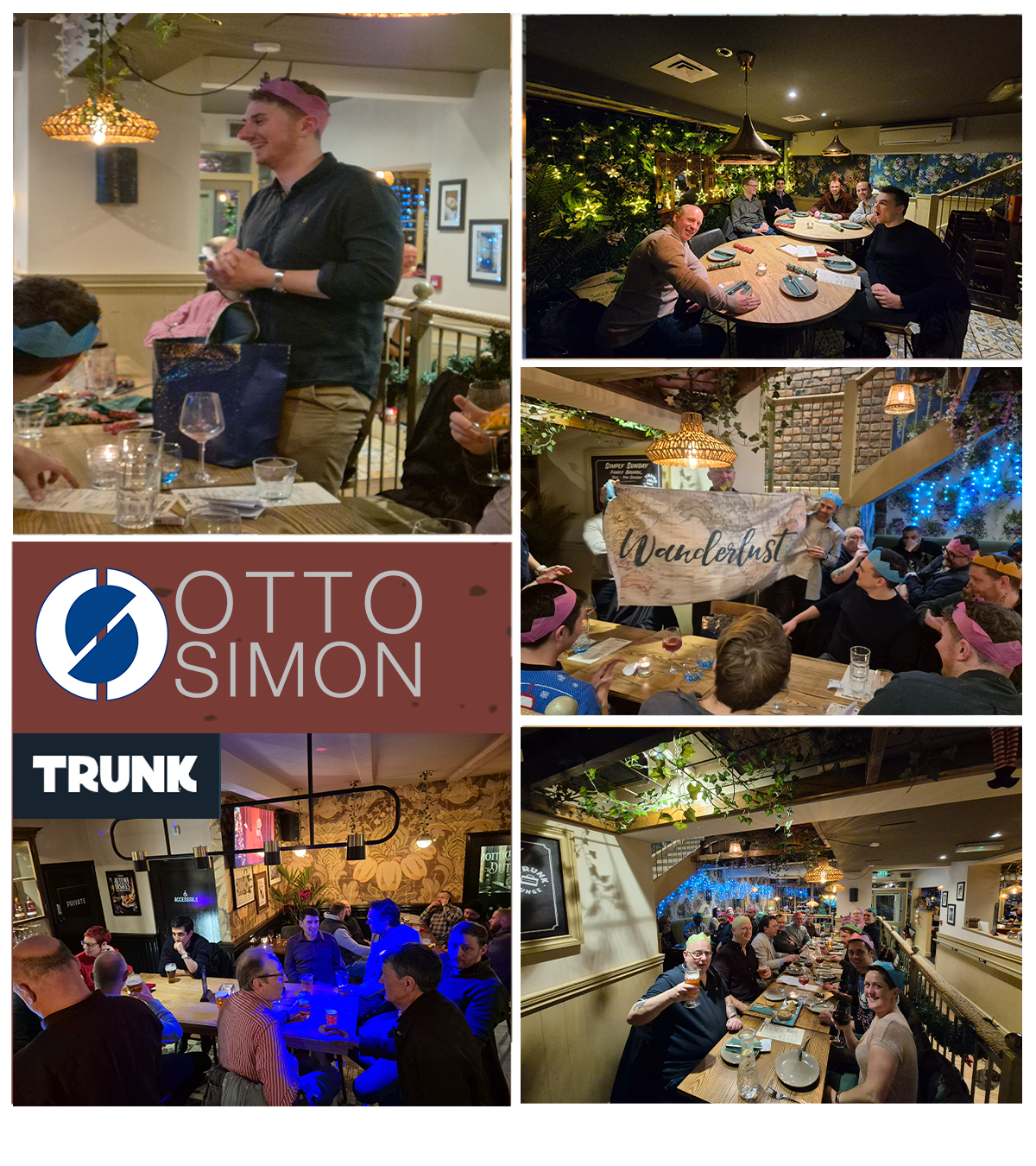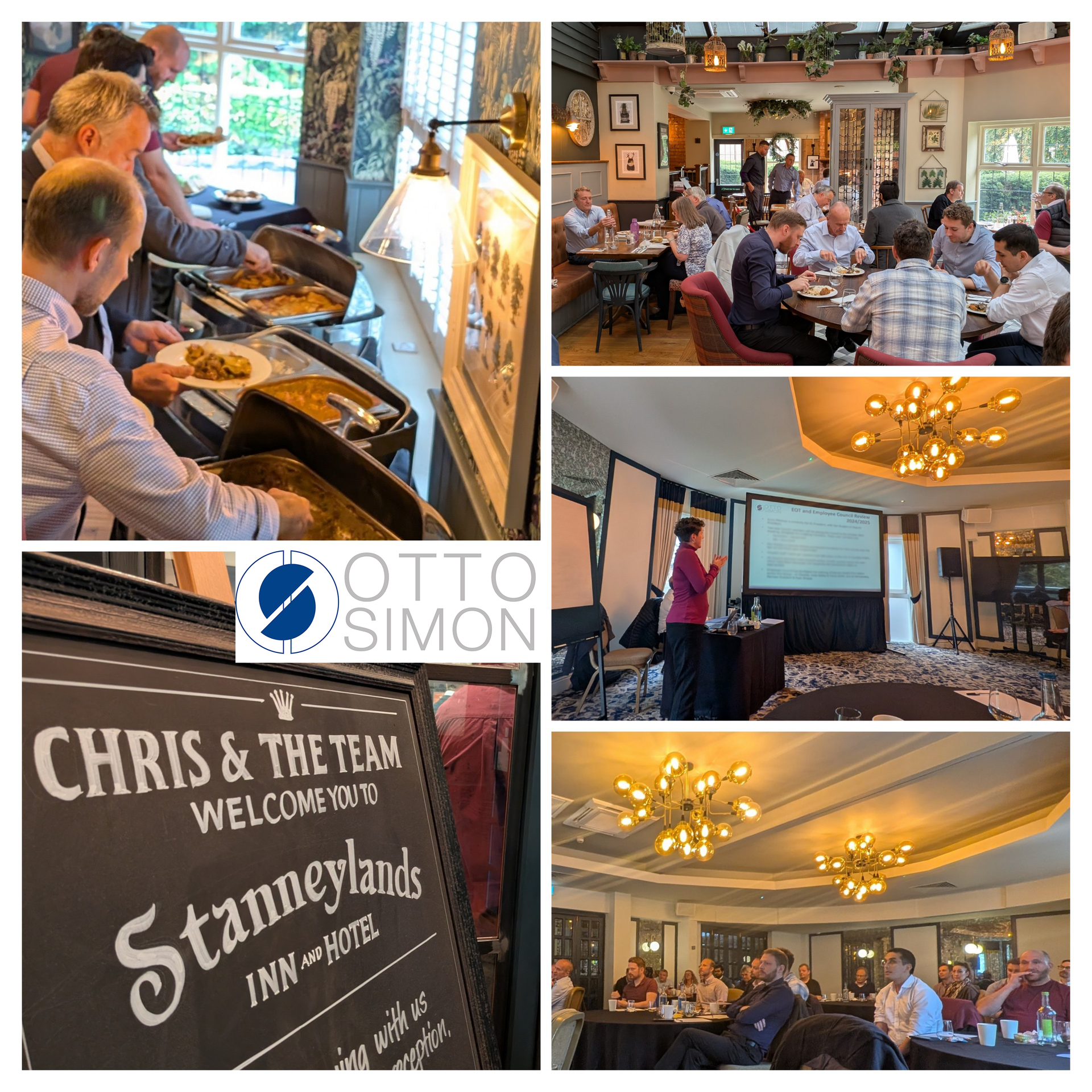Stem Ambassador
Otto Simon Ltd • January 8, 2018
Guest Blog – Vikas Saxena BEng(Hons) MSc MIET, EC&I Engineer at Otto Simon and STEM Ambassador.
I’ve been a STEM Ambassador for the past 5 years, working with schools and education organisations to encourage enthusiasm and understanding of science, technology, engineering and maths (STEM) subjects, and raising an awareness of careers related to STEM.
Last November, I participated in the Loreto College Engineering & Applied Physics Speed Meet 2017. Now in its third year, this event invited fifty students from Loreto’s Sixth Form and Year 11 Students from local secondary schools across Manchester and Salford to network with engineers from a variety of STEM industries. The event comprised of two ‘speed meets’ for small groups of students to spend 5 minutes chatting with each engineer / physicist about their profession and daily job challenges. The students were then encouraged to continue discussions during networking breaks, asking us everything from types of projects we’ve worked on, to salary, typical job routines, benefits and working hours.
I was proud to participate in this event, as I believe it helps the students to analyse various options available in the job market and make an informed decision about their career. It also helps them to understand what are current challenges and requirements in certain industries so that they can align their educational path in order to suit their professional objective. It was great to see so many STEM industries represented at the event from transport and rail, to specialist equipment manufacturing, applied physics, and process, instrument and electrical engineering.
Later in the year, Otto Simon is hoping to facilitate a site visit to one of our on-going projects, aiming to inspire and engage more young people to enter the world of engineering. This technical site visit will be co-sponsored by IET. Other upcoming events I’m looking forward to being involved with for STEM are: ‘Mentor schools in the Greater Manchester Engineering Challenge’, and ‘Interview an Engineer’. Watch this space for details.
Britain has a proud engineering heritage, but there is a shortfall in qualified engineering graduates and skilled technicians. Every year there is an annual shortfall of 20,000 engineering graduates, and with only one third of parents understanding what the engineering profession is, it is up to the industry to promote STEM careers to the next generation of engineers.
2018 is officially the Year of Engineering, a year-long government campaign to support the engineering profession in recruiting the next generation of engineers. It is fantastic to see the government taking an interest in celebrating UK engineering, and as they work with industry partners, schools and families to offer young people a positive experience of engineering.
Find out more about the role of STEM Ambassadors and how you can get involved: www.stem.org.uk/stem-ambassadors
Or discover the more about the Year of Engineering 2018: www.dft.gov.uk/year-of-engineering-2018/
Back to Blog


 Show More
Show More
Recent Blog Posts

Well, another year is winding down, and what a year it’s been! Here at Otto Simon, we decided to celebrate all the hard work and dedication of our fantastic team with an evening of festive fun, delicious food, and a touch of wanderlust! A huge, heartfelt thank you goes out to Anna for orchestrating what was a truly splendid Christmas gathering. From the atmospheric lighting to the perfectly planned tapas, Anna, you outdid yourself. Our merry band descended upon Trunk Lounge in Bramhall, and it was fantastic to see such a great turnout, proving that even after a busy year, we still love spending time together! Now, every good story has a new chapter, and for one of our own, that chapter involves packing a very large suitcase! We had the pleasure of raising a glass (or several!) to Chris and his partner Lydia, who are embarking on an incredible year-long adventure, travelling the globe, we are not jealous at all. From all of us at Otto Simon, we wish Chris and Lydia the very best of luck on their incredible journey. We are all sure looking forward to reliving your amazing memories with you upon your return. We would like to end the year with sincere thanks to our Clients, Partners and Staff for all their efforts over the past year and are looking forward to another busy and rewarding year in 2026. Here's to a wonderful Christmas break for everyone, and a prosperous, exciting New Year!

This year we celebrated our year of successes and lessons learnt at the Stanneylands, Wilmslow. Topics included how we have streamlined our, reducing business overheads and making our collaboration more efficient. Specific attention was paid to the successes of the projects we have delivered over the last year and the consolidation of the team into our new headquarters. Ferrostatics proudly shared their highest year of revenue and strong performance, with a promising year to follow. We have also reviewed key team changes, including the expansion of the engineering team and restructuring of our Sales team. We look ahead to 2026 with confidence, fresh focus and further passion to deliver leading engineering expertise and customer service!

Aerbio and Otto Simon have been jointly shortlisted as finalists for the IChemE Global Awards 2025 in the Biopharma category. Our entry, Clean Protein: Engineered for a Resource-Constrained World, showcases the research and engineering efforts being the development of Proton™, a protein-rich single-cell biomass produced using a novel aerobic gas-fermentation process, utilising hydrogen, oxygen, and carbon dioxide as feed gases. This project has demonstrated the feasibility of producing a sustainable, high-quality protein ingredient at pilot scale, with applications in aquaculture and animal nutrition today, and the potential to expand to food-grade applications in the future. The technical challenges of this work have been considerable. Designing and operating a continuous fermentation system with hydrogen and oxygen in flammable ranges required rigorous safety engineering: hazard studies, CFD modelling, ATEX compliance, and functional safety analysis were all critical. With no commercial-scale precedents to draw upon, designs were developed from first principles and validated through lab-scale experimentation and pilot-plant data. Despite the added complexity of international collaboration during the COVID-19 pandemic, the project successfully delivered a first-of-a-kind pilot facility, generating essential data to enable scale-up to demonstration and commercial scale. The outcome speak for itself: Proton™ contains over 70% protein with a complete amino acid profile, delivers strong results in digestibility and extrusion trials, and has already shown positive performance in aquaculture and poultry feed applications. It can be produced with a fraction of the greenhouse gas emissions and water use of conventional proteins, while requiring no arable land and supporting biodiversity by reducing reliance on fishmeal and soy. This nomination recognises the strength of our cross-disciplinary partnership, combining microbial fermentation expertise with advanced process design, safety engineering, and scale-up know-how. Together, we are laying the foundations for a scalable, climate-positive protein platform that can contribute to global food security while reducing environmental impact. We look forward to the awards ceremony later this year and to continuing our journey towards commercial deployment of this disruptive technology. Learn more about the project: - Aerbio website